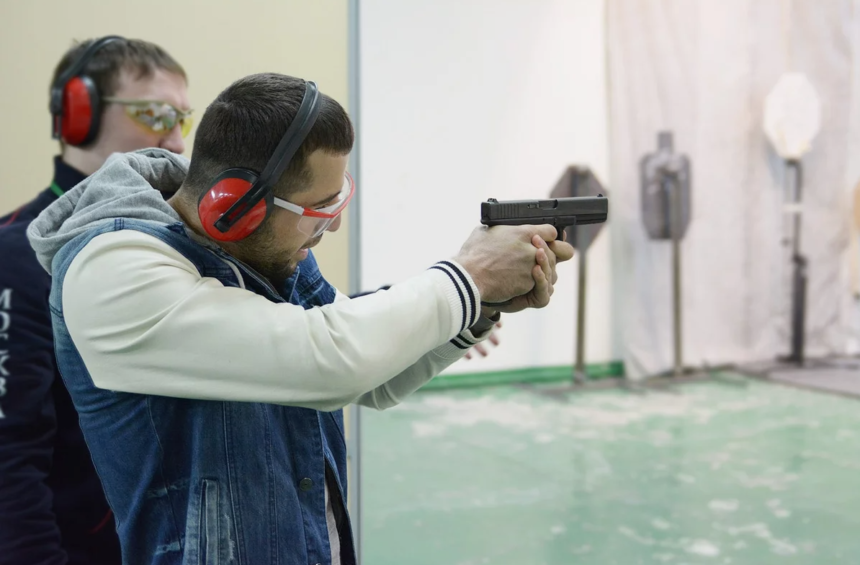Firearms training is a vital step for anyone who handles weapons, whether it’s for personal defense, recreational shooting, or professional purposes like law enforcement. While many individuals are eager to become skilled with firearms, the reality is that mastering their safe and effective use involves much more than simply visiting the shooting range. Comprehensive firearms training covers crucial aspects such as safety protocols, proper handling techniques, and situational awareness. Understanding your own skill level and recognizing when professional guidance is needed is essential for preventing accidents, improving accuracy, and gaining the confidence to handle firearms responsibly in any situation.
Why Firearms Training is Essential
Firearms training is more than just learning how to shoot a target. It involves understanding safety protocols, handling different types of firearms, and developing the ability to act confidently and responsibly in high-stress situations. Whether you’re a beginner or someone with some shooting experience, formal training can ensure you’re not just relying on instinct or basic skills but are thoroughly prepared for real-world scenarios.
Professional firearms training provides a structured approach that helps you build a solid foundation, focusing on essential skills like:
- Proper firearm handling and maintenance
- Situational awareness and judgment
- Accuracy and precision in shooting
- Understanding legal considerations and regulations
Signs You Need Professional Firearms Training
No matter how much experience you might have with firearms, there are several signs that indicate you could benefit from professional training. If any of the following scenarios resonate with you, it may be time to consider seeking expert guidance.
Lack of Confidence in Handling Firearms
One of the most telling signs that you need professional firearms training is a lack of confidence when handling or using a weapon. This could stem from limited experience or uncertainty about safety protocols. If you’re unsure how to respond in a situation where you might need to use a firearm, training can help build your confidence.
Professional instructors provide not only the technical skills but also the mental preparation needed to respond calmly and effectively under pressure. Confidence is key when dealing with firearms, and proper training can significantly boost your readiness.
Gaps in Safety Knowledge
Safety is the most critical aspect of firearms training. If you’re not thoroughly familiar with safety protocols, such as how to properly store a weapon, how to handle a misfire, or how to prevent accidents, you should seek professional training immediately. This is particularly important for anyone who owns firearms at home or regularly carries a weapon.
A professional instructor will ensure that you are well-versed in firearm safety, reducing the risk of accidents both on and off the range. Firearms training focuses on developing lifelong habits that prioritize safety over anything else.
Difficulty Hitting Targets Consistently
Consistent accuracy is a key component of firearms training, and difficulty hitting your target can indicate gaps in your shooting technique. Whether it’s issues with your stance, grip, or trigger control, a professional instructor can diagnose and correct these problems.
Many people believe that simply practicing at the range is enough to improve accuracy, but without proper guidance, you could be reinforcing bad habits. Firearms training ensures you’re using correct techniques that will lead to better, more consistent performance.
Desire for Advanced Skills
For individuals looking to go beyond the basics of shooting, advanced firearms training is a must. Whether you want to develop skills for competitive shooting, personal defense, or tactical situations, professional instruction can take your abilities to the next level. This is particularly true for specialized training, such as Specialized firearms training for law enforcement.
In these cases, professional instructors with experience in tactical scenarios can help individuals or groups prepare for high-stress, real-world situations. Specialized training emphasizes decision-making, teamwork, and responding effectively to unexpected challenges, which are critical skills for law enforcement and other professionals who rely on firearms for their duties.
Transitioning to Different Types of Firearms
If you’re transitioning to a new or unfamiliar type of firearm, professional training is crucial. Different firearms require different techniques for handling, shooting, and maintenance. For example, moving from a handgun to a rifle or shotgun involves mastering a new set of skills.
A professional instructor can guide you through this transition, ensuring you understand the specific characteristics and challenges of the new weapon. Firearms training ensures that you can adapt quickly and efficiently, preventing any potential mishandling that could lead to safety risks.
Preparing for Situational or Tactical Use
Many individuals seek firearms training because they want to be prepared for real-life situations, such as home defense or potential threats in public settings. In these scenarios, merely knowing how to shoot is not enough; you must be able to assess the situation, make quick decisions, and act appropriately. Tactical firearms training focuses on these skills, providing simulated experiences that teach you how to respond under pressure.
This type of training is invaluable for anyone who anticipates needing a firearm for defensive purposes. It prepares you for the mental and physical demands of handling high-stress scenarios where clear thinking and quick actions are crucial.
Right Training Program
When seeking professional firearms training, it’s important to choose the right program for your needs. Not all training courses are the same, and it’s important to find one that aligns with your goals, whether you’re looking for basic instruction, tactical training, or specialized firearms training.
Focus on Safety and Instruction Quality
The best firearms training programs prioritize safety above all else. Ensure that the instructors are certified and have extensive experience, particularly in the areas you’re interested in developing. Firearms training requires precision in both instruction and execution, so selecting a high-quality program is critical.
Tailored to Your Skill Level
Whether you’re a novice or an experienced shooter, your training should be tailored to your skill level. Beginner courses focus on foundational skills, while more advanced courses delve into specialized techniques. Discuss your current abilities with potential instructors to ensure you’re placed in a course that suits your needs.
Consider Real-World Application
When evaluating different training programs, consider how well the instruction prepares you for real-world scenarios. Courses that emphasize situational awareness, decision-making, and legal considerations are essential for anyone who might need to use their firearm defensively.
In conclusion, professional firearms training is essential for anyone who wants to use firearms safely and effectively. Whether you’re a beginner or someone with some experience, there are always new skills to learn and areas to improve. From basic handling to advanced tactical skills, firearms training offers invaluable lessons that ensure you’re prepared for any situation.
Remember, responsible firearms ownership and use go hand in hand with continuous education and training.






